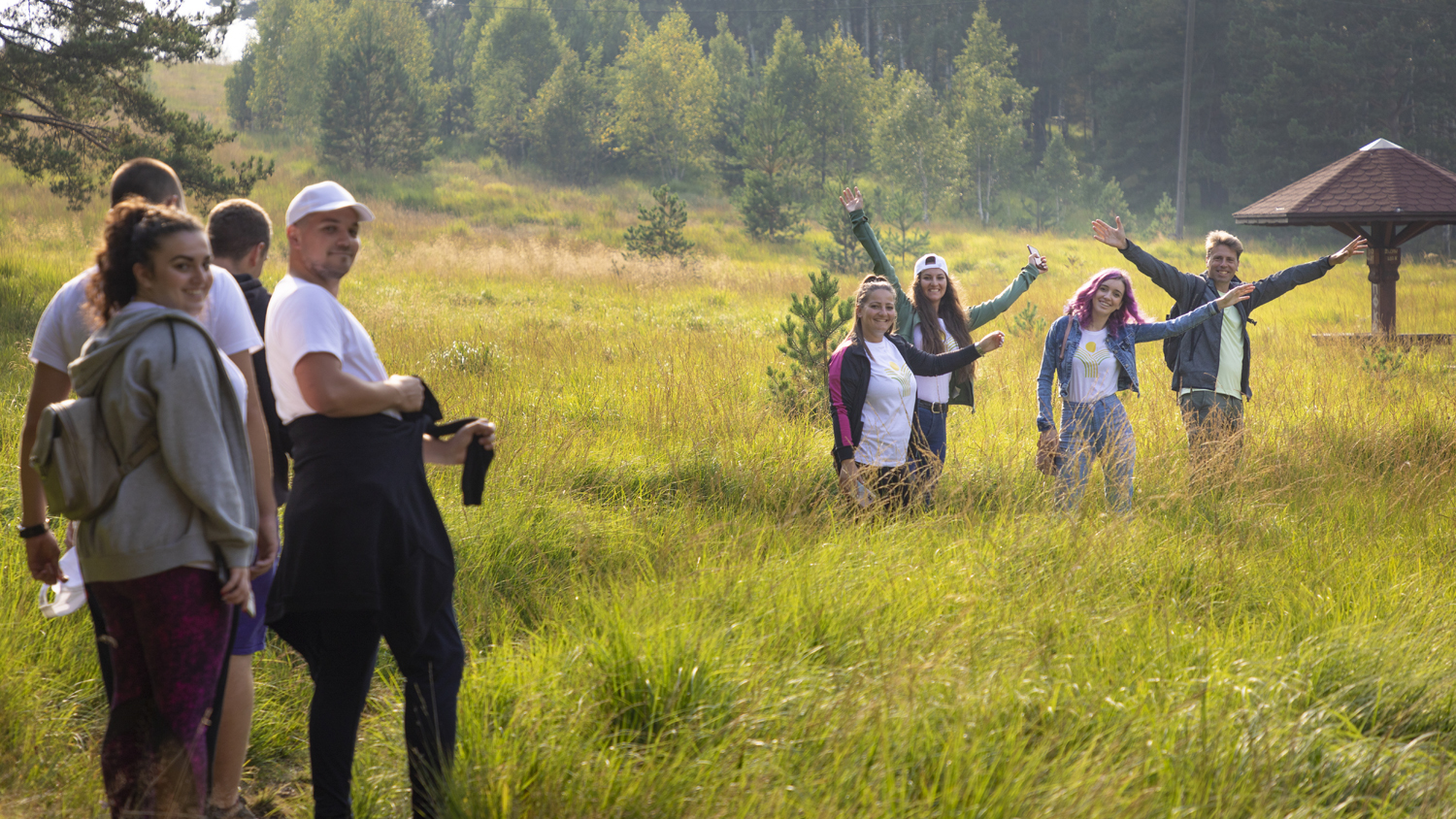
PERSPEКTIVE ZA MLADE U RURALNIM SREDINAMA U SRBIJI
Period trajanja projekta: 11/2021 – 10/2024
Izazov
Mladi u ruralnim sredinama u Srbiji teško mogu da ostvare svoj pun potencijal u okviru zajednice. Imaju ograničene mogućnosti da aktivno učestvuju u oblikovanju svog ekonomskog, političkog, socijalnog i kulturnog okruženja. Zbog ovakvih izazova mladi često odlaze u gradove ili inostranstvo. Takođe, različiti faktori utiču na proces ekonomske i socijalne reintegracije onih koji se vrate svojim domovima. Ovo je naročito izraženo kada je reč o osetljivim grupama.
Pristup
Cilj projekta je da zajedno sa mladima u ruralnim sredinama unapredi njihove ekonomske, socijalne i kulturne perspektive. Projekat je namenjen mladima od 18 do 30 godina starosti i do 40 godina u slučaju osetljivih grupa kao što su povratnici, mlade žene i etničke manjine.
Naš pristup podrazumeva:
- podsticanje i osnaživanje mladih ljudi kroz konsultacije da preuzmu odgovornost za okruženje u kojem žive.
- finansiranje inicijativa koje imaju za cilj poboljšanje kvaliteta života u zajednicama.
- podršku pristupima za poboljšanje ekonomskih perspektiva.
- izgradnju kapaciteta za primenu instrumenata u lokalnim zajednicama pomoću kojih se lakše identifikuju potrebe mladih i obezbeđivanje njihovog aktivnog učešća u procesima donošenja odluka u lokalnim politikama.
Rezultati
- 128 mladih ljudi iz 8 pilot regiona učestvovalo je na 5 letnjih kampova i steklo veštine za aktivno učešće i liderstvo.
- Na kampovima su razvili 22 ideje za poboljšanje kvaliteta života u svojoj zajednici koje će biti finansirane kroz lokalne fondove za mlade koji se sprovode u saradnji sa 7 organizacija civilnog društva.
- U saradnji sa Nacionalnom asocijacijom praktičara i praktičarki omladinskog rada (NAPOR) biće obučeno 24 omladinska radnika/ce i do 48 omladinskih lidera/ki.
- U vodećoj ulozi omladinskih lidera/ki, omladinskih radnika/ca i u saradnji sa ključnim lokalnim akterima, mladi će aktivno učestvovati u projektovanju, donošenju odluka i sprovođenju lokalnih politika i njihovom povezivanju sa nacionalnim prioritetima. 13 lokalnih samouprava u 10 pilot regiona iskazalo je interesovanje za dalju saradnju.
- U narednoj fazi, mladi u odabranim pilot regionima će dobiti priliku da steknu neophodna znanja i veštine, da dobiju podršku za pristup finansijama i novim tržištima, kao i da se umreže sa ciljem da diversifikuju svoje mogućnosti za ostvarivanje prihoda, pre svega u oblasti (organske) poljoprivrede i seoskog turizma.
Projekat “Perspektive za mlade u ruralnim sredinama u Srbiji” u okviru Nemačke razvojne saradnje sprovodi GIZ u partnerstvu sa Ministarstvom omladine i sporta Republike Srbije.

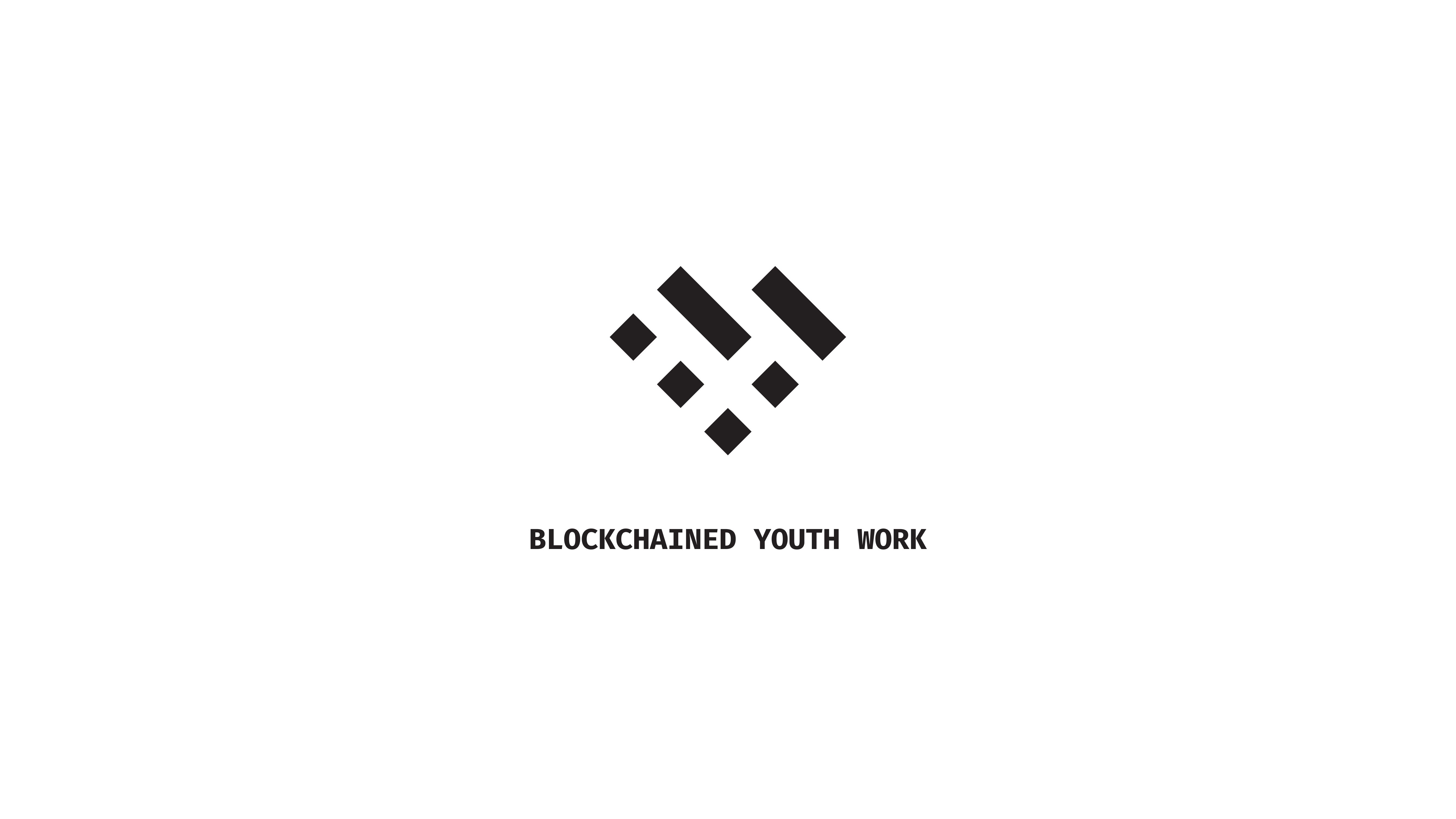
ABOUT THE PROJECT
- Youth work is still invisible and often marginalized.
- The Blockchained Youth Work will bring immense refreshment to the youth work with its innovative digital solutions that are applicable beyond youth sector and youth work.
- This project will provide: common language and value base, legitimize the work done by the youth sector, improve understanding of innovation and quality, enhance quality in educational practices, and support the experience that youth workers bring to the society.
- The project will strongly contribute to increasing quality, innovation by improving digital readiness, resilience and capacity and the visibility of youth work.
With the Blockchained Youth Work we wish to tackle the insufficient recognition and validation of youth work, and address them with digital innovation
PARTNERS OF THE PROJECT
The University of Ljubljana (UL): is the oldest, largest and international university in Slovenia ranked among the top 500 universities according to the ARWU Shanghai scale.
Out of the Box International (OTB): is a European Network present in 25 European countries bringing together different organizations advocating for more innovative, citizen-centered and solidarity policies on the European and city level.
Österreichische Kinder und Jugendertretung verein (aufZAQ): brings expertise, knowledge and skills in mapping educational practices, creating quality standards for education, training, etc., and through the project will also present the state of work with young people in Austria.
National association of youth workers (NAPOR): embraces 44 organizations of youth and for youth which implement youth work throughout Serbia.
The National Youth Council of Slovenia (MSS): is an umbrella organization linking all national youth organizations irrespective of their various interests, ideological or political orientations. In Slovenia the MSS has been leading the process of strengthening the youth sector nation-wide and has been strongly involved in all stages of youth policy creation since its establishment in 1990.
WHAT IS BLOCKCHAIN?
Literature: Blockchain in Education - Science for Policy report by the Joint Research Centre; Grech & Camilleri (2017.), European Commission
More about Blockchain How Blockchain Could Impact Education in 2020 and Beyond
MAIN PROJECT RESULTS:
- Analyze key issues in partner countries related to youth work recognition and validation;
- Develop quality framework based on qualitative and quantitative analysis of educational practices;
- Build 1 blockchain platform;
- Include at least 25 organizations in the pilot training certification process, and at least 50 certified trainings on the blockchain platform;
- Implement a quality advocacy plan on quality of youth work and sustainable innovative solutions;
IMPLEMENTATION
1) Kick off meeting was held from 9th of 11th January 2023. in Novi Sad. Representatives from each partner organization attended the meeting. Meeting was dedicated to fine tune time frame of the project and each of the planned activities and to get common understanding of responsibilities of each organization concerning technical and financial matters and reporting.
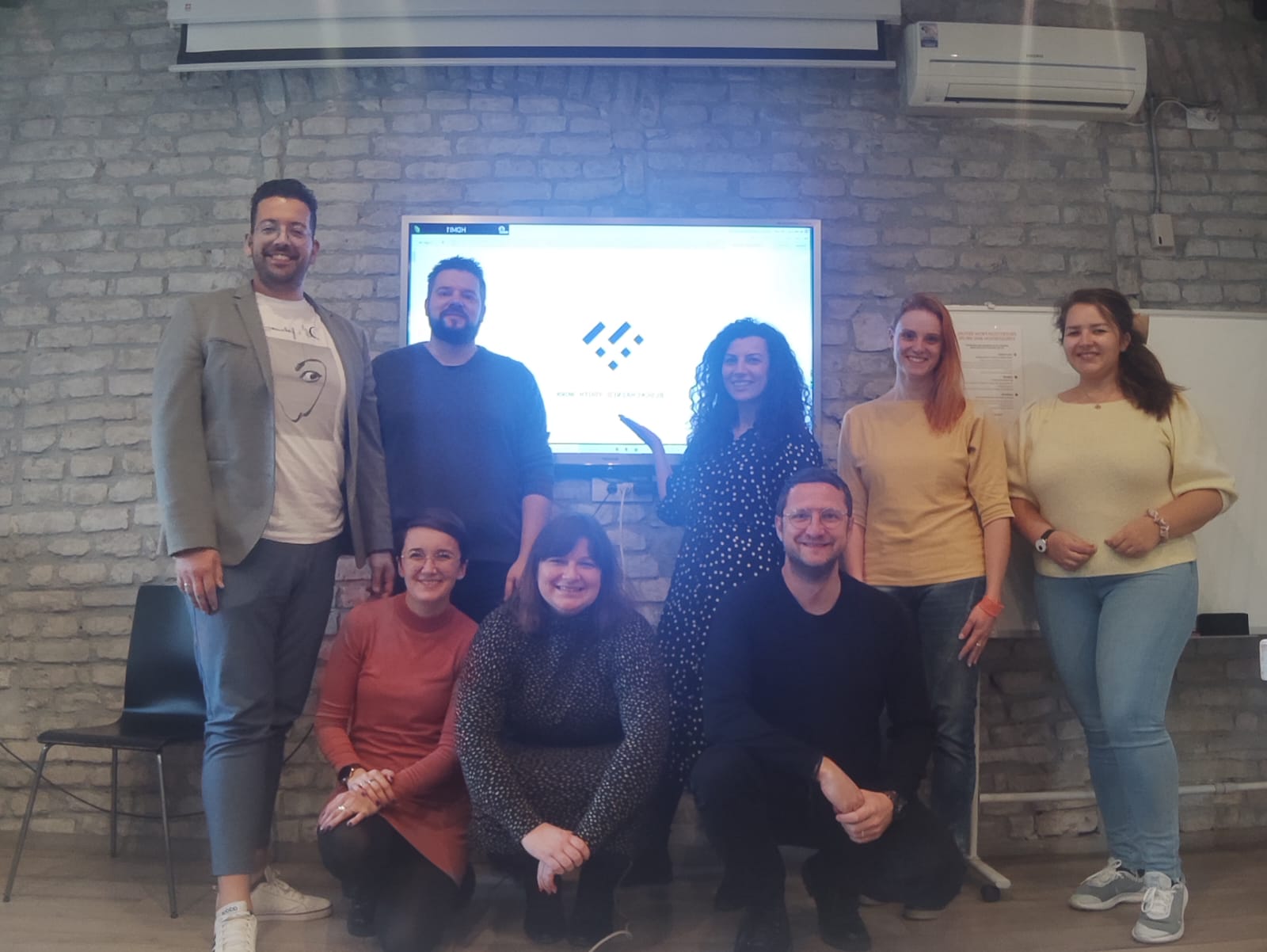
2) Analyze key issues in partner countries related to youth work recognition and validation.
3) Development of quality framework based on qualitative and quantitative analysis of educational practices.
4) Second partners meeting was held from 13th of 15th January 2023. in Vienna.
The project started on March 1st 2022 and it will end in 2 years’ time.
Measuring impact in youth work- mission (im)possible!
Project is led by National Association of Youth Workers - NAPOR (Serbia), in cooperation with Sojuz za mladinska rabota Skopje (The North Republic of Macedonia), University St Kliment Ohridski (Bulgaria), NINFEA (Italy), APPJUVENTUDE (Portugal) and Institute of Social Sciences (Serbia) It's funded by the Tempus Foundation through the ERASMUS+ program of the European CommissionAll youth workers around Europe agree that Youth Work changes lives. It provides opportunities for personal achievement and community involvement, supports life and social skills, promotes physical and mental wellbeing, and opens pathways to employment, further education, and positive futures for young people. Positive experiences in areas like these directly impact young people – particularly those from vulnerable groups.
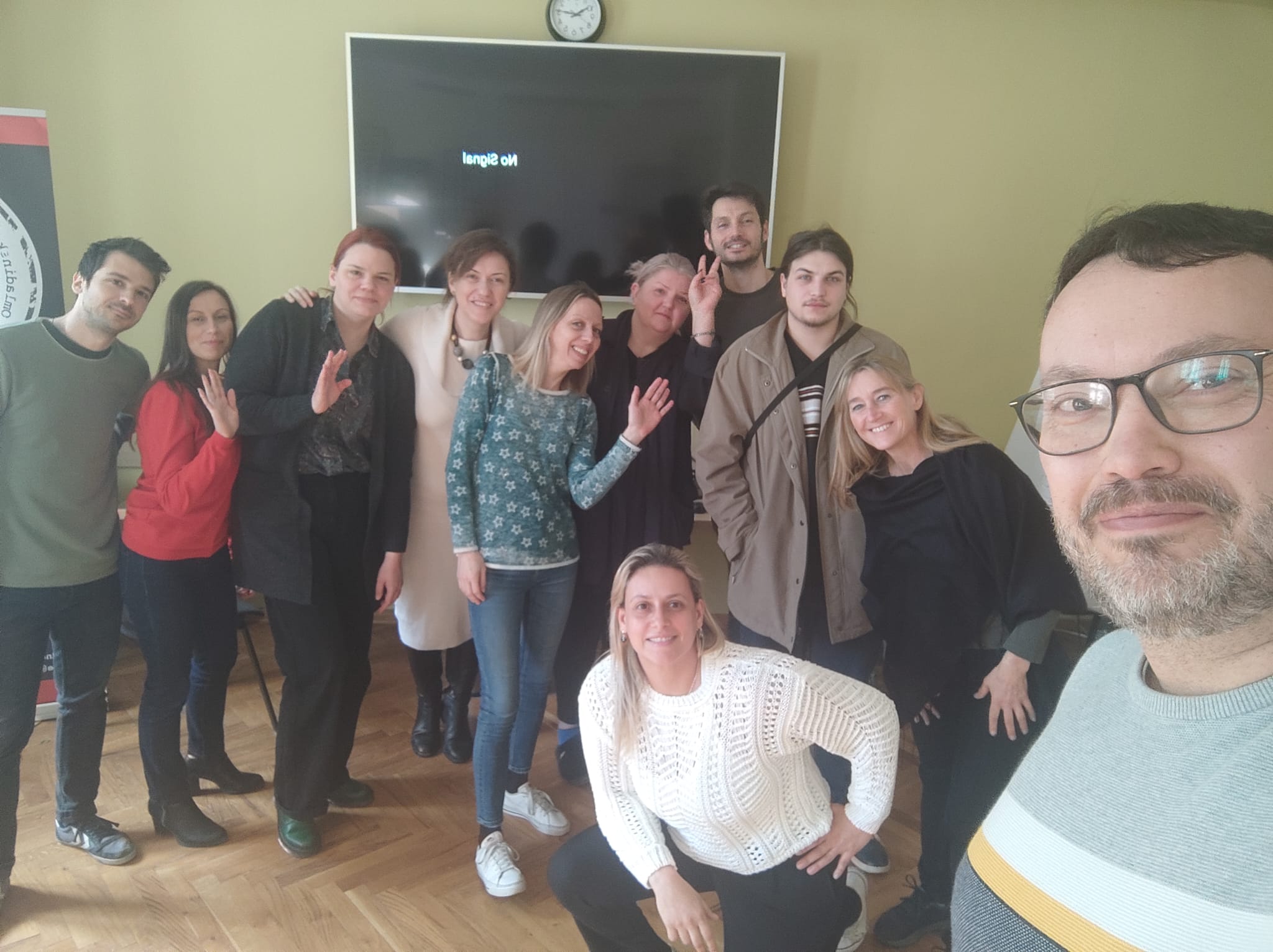
So, what evidence do we provide to support this common agreement?
How can we measure these changes on the level of young people or local communities?
What scientific data can we provide?
The overall aim of the partnership is to develop a mechanism that will provide the evidence of the importance of youth work in Europe, create a legacy for future advocacy activities in order to ensure recognition and quality of youth work programs.
Specifically, the project aims to:
1. conduct mapping of existing practices, mechanisms, tools, instruments at EU, national, local levels related to the impact of YW on youth;
2. develop mechanism and instrument(s) related to the impact of youth work on youth and its usage for advocacy purposes;
3. develop and test mechanism and instrument for measuring the social impact of youth work (economical aspect incorporated) and its usage for advocacy purposes.
4. foster multi-sectoral cooperation in the field of youth by gathering research and youth work communities.
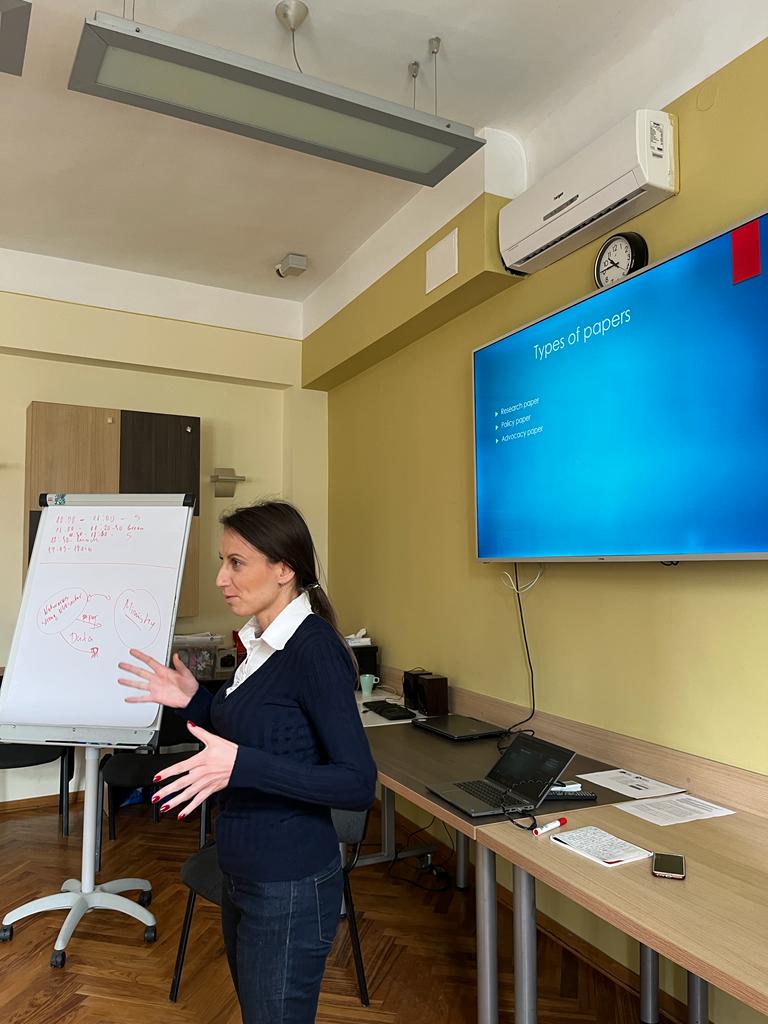
Planned outputs of the project are:
- Booklet “Mapping of leading practices at local, national and European level regarding youth work impact on youth” containing up to 20 methods and tools, reflecting Serbian, Portuguese, Italian, Macedonian and EU level.
- Developed mechanism for measuring youth work impact on youth, along with instrument(s).
- Research study containing mechanism and instruments for measuring social and economic youth work impact, along with a report of implemented mechanism in 4 countries involving 300 youth.
- Capacity building training in Serbia for 12 employees of national associations from 4 countries for the implementation of the mechanism for measuring the social impact of youth work and translation of data into advocacy arguments.
- Multiplier event “How to measure youth work impact on youth” for 120 youth workers, organisations and representatives of national and local institutions from Serbia, Portugal, Italy and The Republic of North Macedonia.
- International Multiplier event - “How we can measure youth work impact?” for up to 30 participants from EU and CoE institutions, international organisations and researchers.
- International Multiplier event – “Creating a plan for measuring the impact of youth work across Europe” for up to 30 participants from National associations of youth workers and European Network of Youth Work Associations.
- Visibility and promotional actions reaching youth workers from 250 organisations and 100 research and academic institutes from Serbia, Portugal, Italy, Bulgaria and The Republic of North Macedonia and up to 200.000 people of the wider public across Europe.
Kick off meeting was organised by NAPOR and took place on line (Zoom platform), on March 14th 2022. It served to introduce all partners and their expertise, have an overview of the main project activities and to get common understanding of responsibilities of each partner.
TPM1 - Preparation meeting of partners took place in Belgrade, Serbia from 7th to 9th of April 2022.
The meeting aimed to set the base for successful implementation of the project and so partners set the detailed time frame, clarified the roles and responsibilities of each partner and dealt with the project management issues such as procedures for implementation, reporting and monitoring of the activities. Significant time was dedicated to the discussion about youth work conditions and forms in Serbia, North Macedonia, Portugal and Italy, including the need for measurement of the impact on young people and local communities.
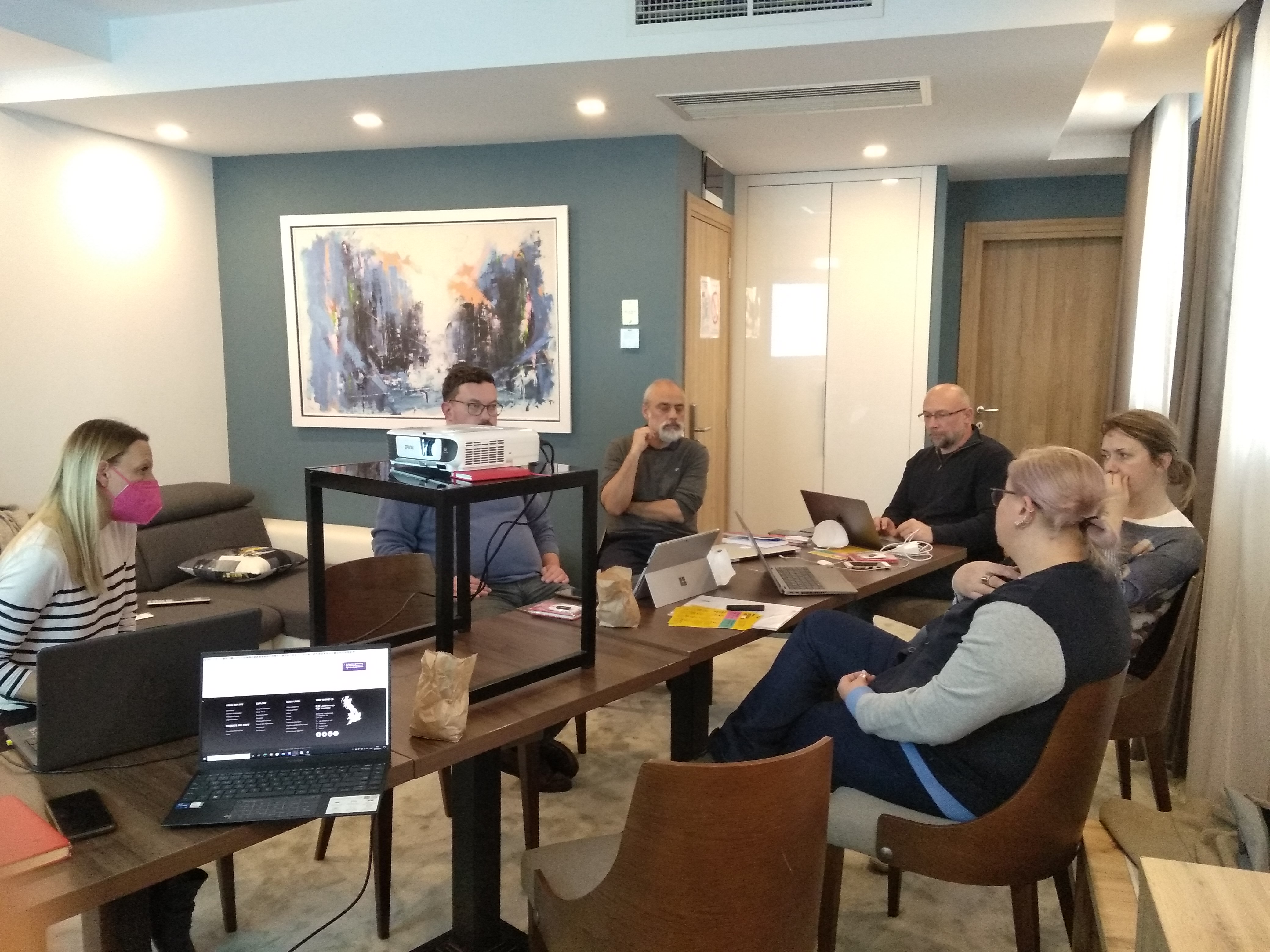 |
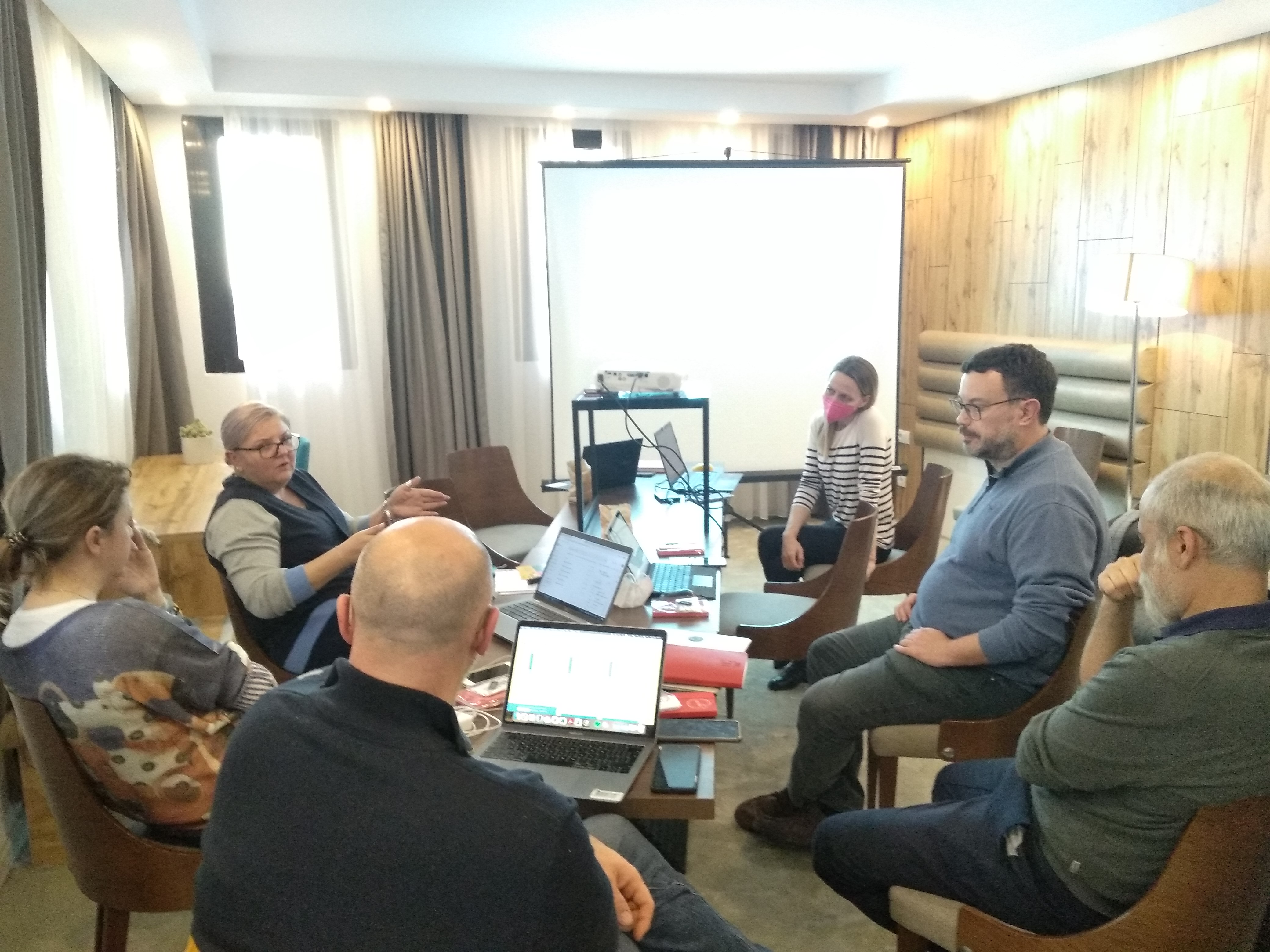 |
TPM2 - Preparation for Mission (im)possible was organised by the Union of Youth Work in Skopje, North Macedonia, taking place from 14th to 16th December 2022. The meeting was dedicated to the final preparation of the research for measuring social impact of youth work.
Researcher teams from Institute for Social Sciences and Sofia University presented the results of the desk research and proposed research design. Long fruitful discussions were around proposed research dimensions, due to the challenge to choose those that correspond to various youth work forms performed in different countries. The methodology for each of 3 research waves for collecting responses is set, as well as target groups profiles and numbers.
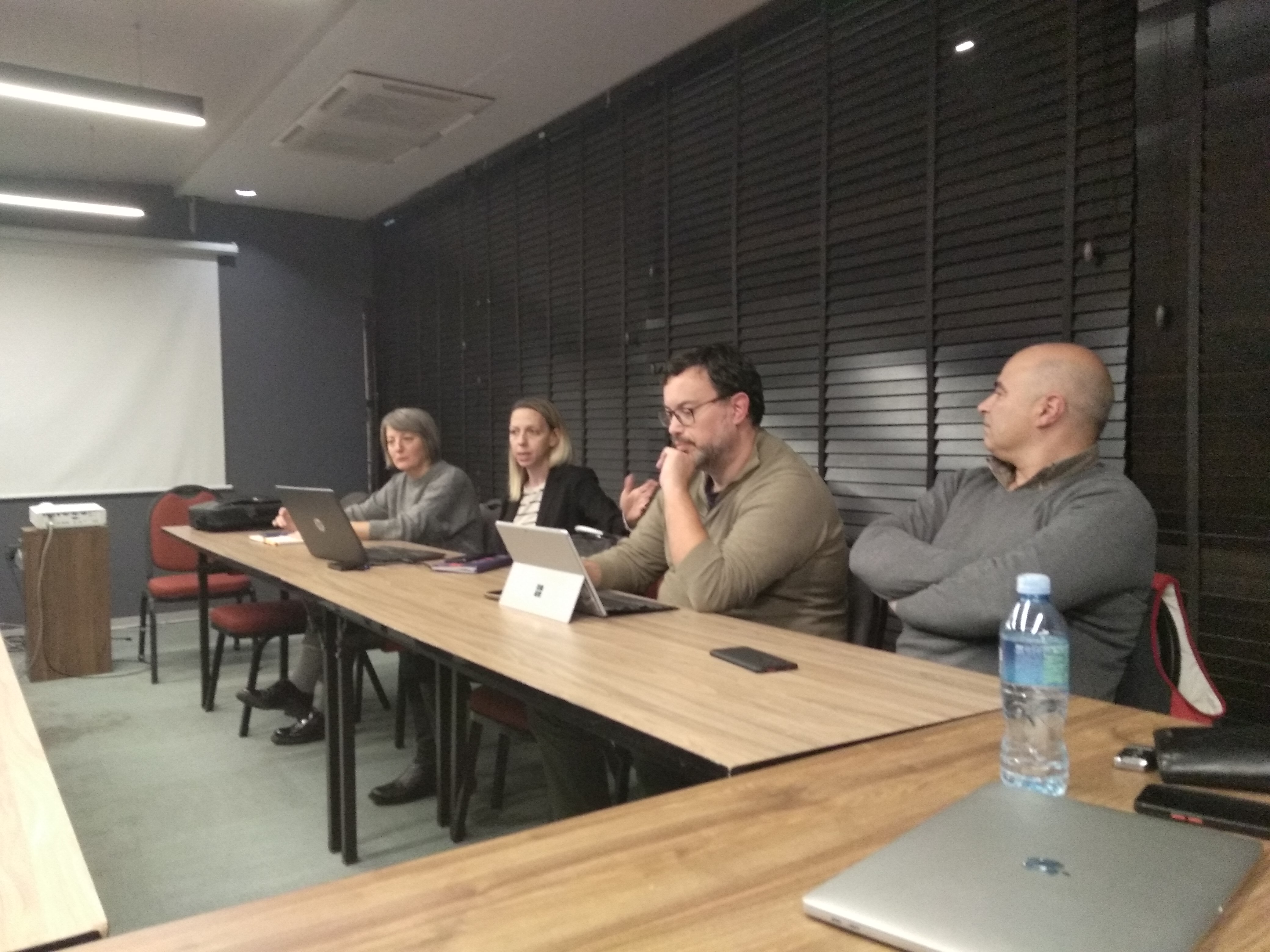 |
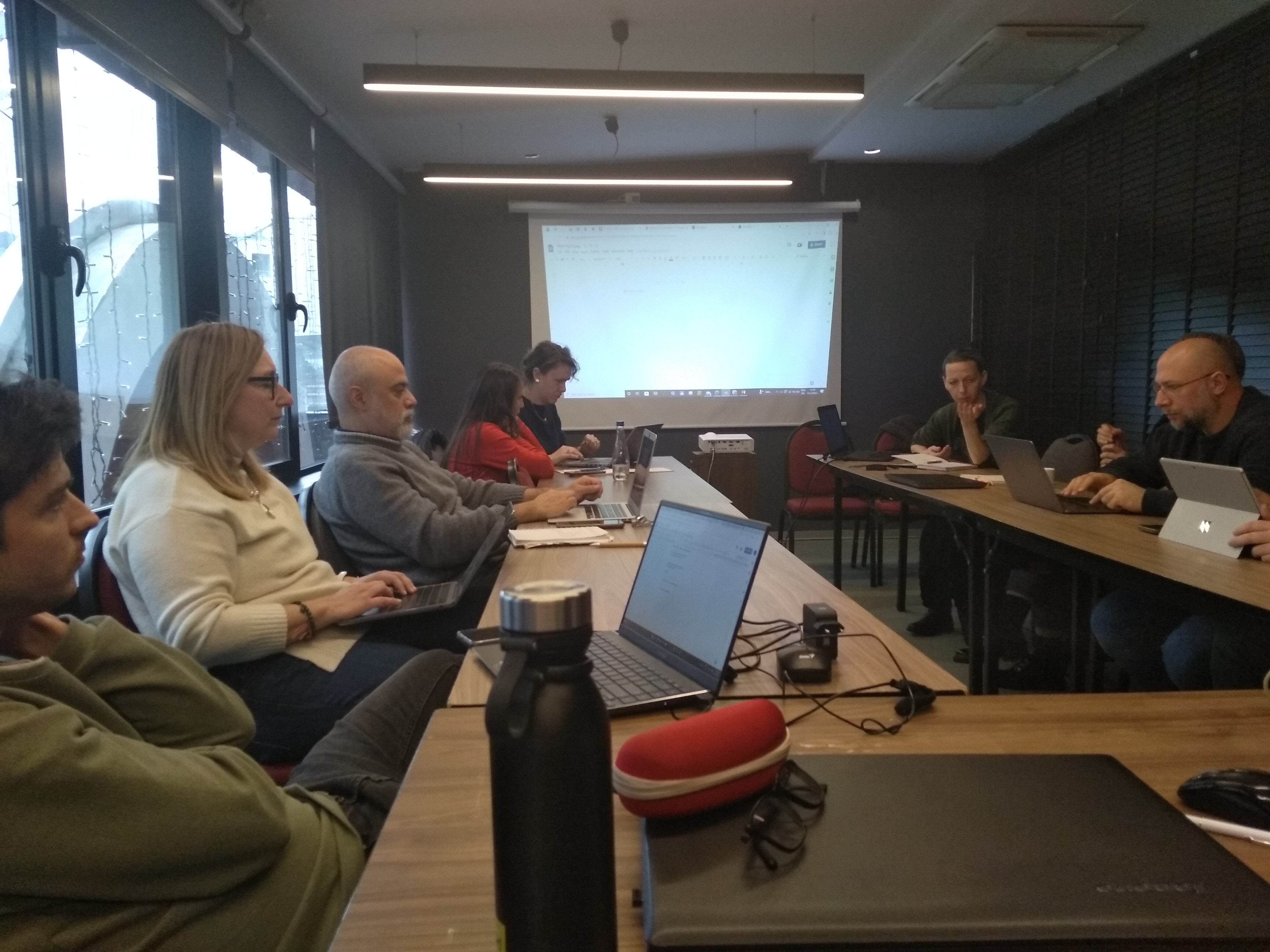 |
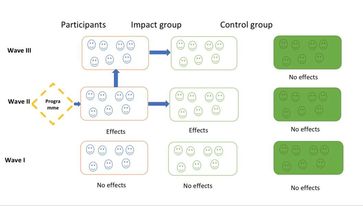
LTTA - Because it is possible...Capacity building for measuring the social impact of youth work was organised by NAPOR, from 17th to 21st of February 2023 in Eco Centre Radulovacki in Sremski Karlovci, Serbia. Profile of participants included researchers from the Institute of social sciences and Sofia University (4) and youth workers appointed by national associations (8), engaged in the testing phase of the Research related to the social impact of youth work. The event aimed to build capacities of participants to perform their roles (researchers and youth workers), tasks and responsibilities with the high-quality. According to the evaluation of participants, the event fully met their expectations, providing the solid base for the implementation of the research.
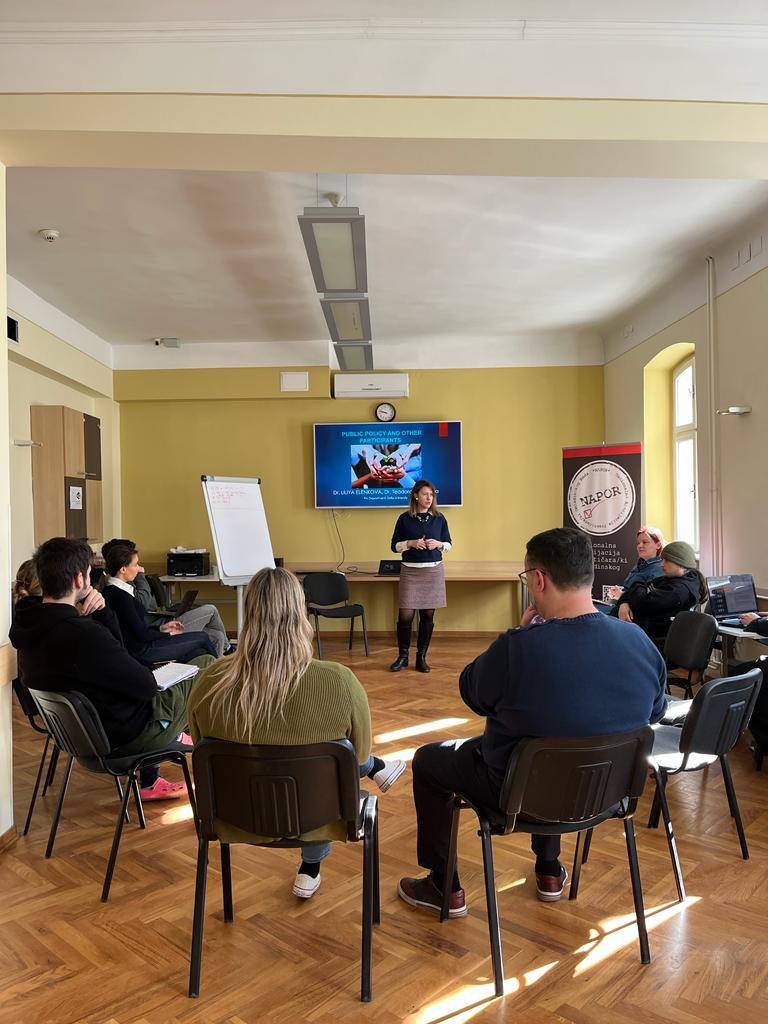 |
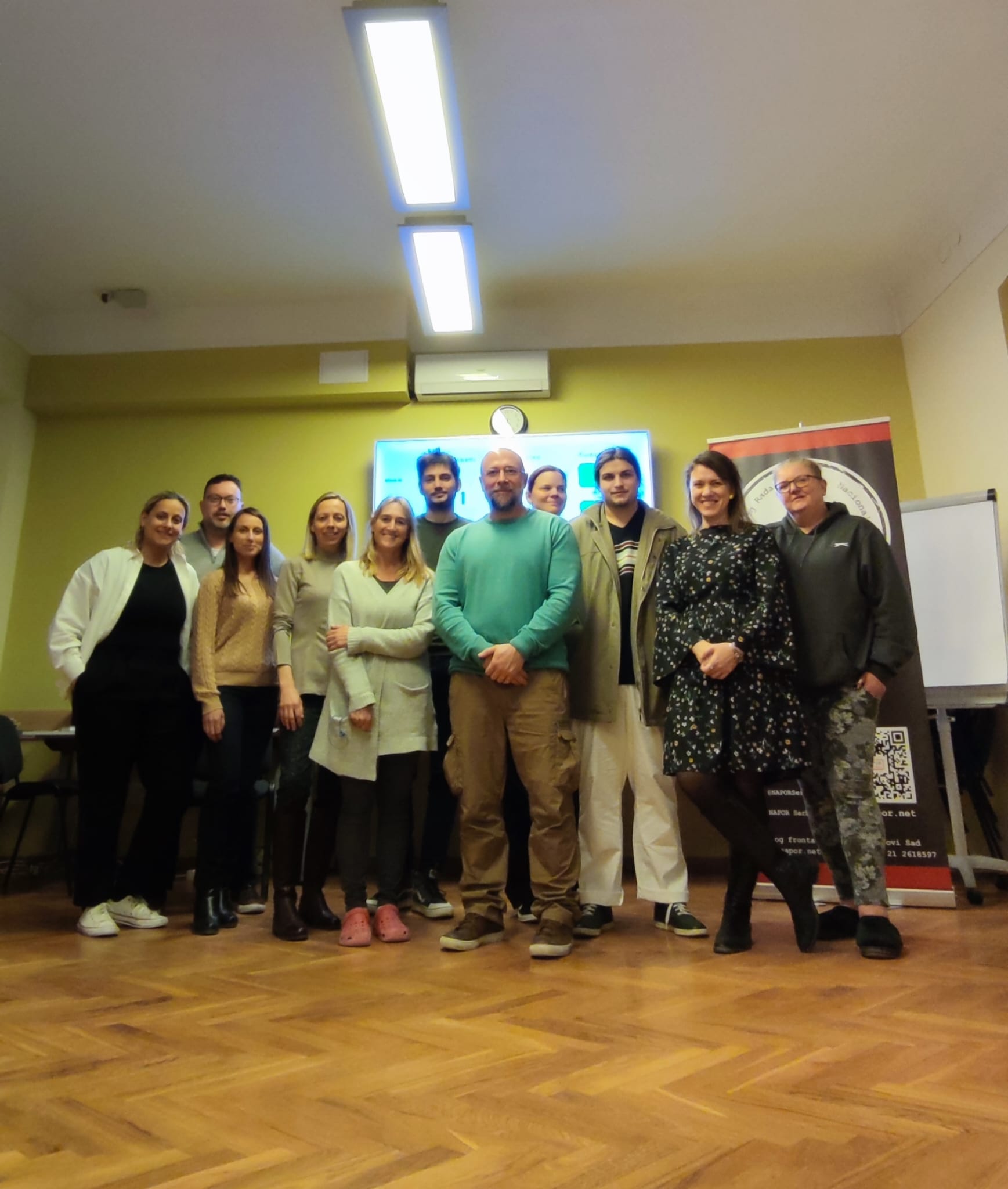 |



